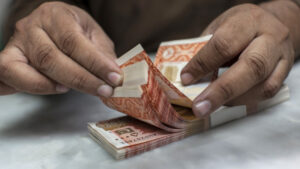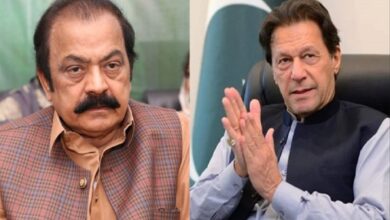Pakistan Eyes Economic Stability and Growth Amid IMF Talks
As Pakistan gears up for negotiations with the International Monetary Fund (IMF) to bolster its economic reform agenda, the government is optimistic about maintaining the stability of the Pakistani rupee without significant devaluation. With foreign exchange reserves solid and the currency steady, Finance Minister Muhammad Aurangzeb anticipates a growth trajectory exceeding 4% in the upcoming years.
Contrary to past IMF agreements that often mandated substantial currency devaluations, Pakistan’s current economic landscape appears different. Aurangzeb highlighted the nation’s robust foreign exchange reserves, stable currency, increasing remittances, and steady exports as factors contributing to this optimistic outlook. While acknowledging the potential volatility of oil prices as a wildcard, Aurangzeb expressed confidence in Pakistan’s projections.
The government aims to bolster key sectors such as agriculture and information technology to drive economic growth. In negotiations with the IMF, Pakistan intends to secure financial assistance through the extended fund facility and the Resilience and Sustainability Trust, focusing on mitigating external shocks.
Addressing immediate financial challenges, Pakistan is poised to repay its external obligations, with reserves expected to increase by the end of the fiscal year. Additionally, the government plans to roll over loans from bilateral partners and seeks a new IMF loan, potentially exceeding $6 billion, to support its economic agenda.
Prime Minister Shehbaz Sharif’s appointment of Aurangzeb, a seasoned finance professional, underscores a strategic shift toward technocratic leadership in navigating Pakistan’s economic challenges. Despite past measures to meet IMF demands, Pakistan faces lingering structural issues, including state-owned enterprise privatization.
As Pakistan prepares for critical IMF negotiations, achieving consensus on broadening the tax base, improving debt sustainability, and revitalizing the energy sector remains paramount. While challenges persist, Pakistan’s commitment to economic stability and growth signals a renewed focus on long-term prosperity.


![Mumtaz Zahra Baloch, spokesperson for Pakistan's Foreign Ministry, says the country believes in constructive dialogue with the US [Courtesy of Pakistan Ministry of Foreign Affairs]](https://southasiancorrespondent.com/wp-content/uploads/2024/06/pak-1-390x220.jpg)


